Open-hearted and unhinged: why Liverpool and Eurovision are made for each other
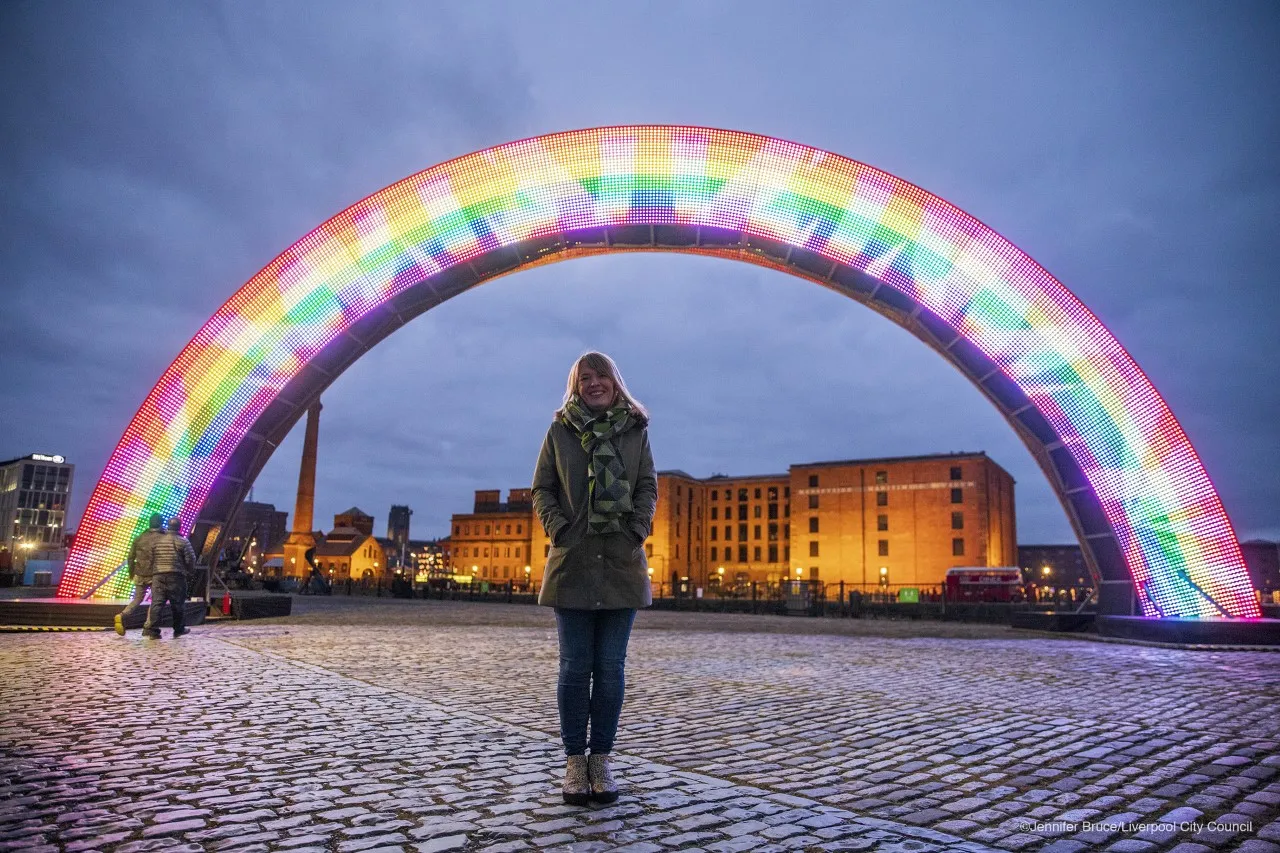
Liverpool's bid shows what the city can achieve when it puts its mind to it
There were two Scousers in Millstreet, County Cork, the night Sonia nearly brought home the Eurovision trophy for the city in 1993. One of them was wearing a skin tight purple catsuit from Paddy’s Market, and the other was Sonia.
I was there, hawking around a reel-to-reel tape recorder for the BBC, asking what startled residents thought of their sleepy one-street town becoming the focus of the world’s press as it welcomed delegates from the recently war-torn carcass of Yugoslavia.
So determined were the Bosnians to represent their new country, they had dodge the gunfire which ricocheted across the runway at Sarajevo as they ran for their plane. Their conductor didn’t make it.
Last year’s event had that same discombobulating juxtaposition: of bloody European history being written to the soundtrack of a woman dressed as a sad clown with an accordion, singing about Aphrodite while semi-naked men seeped out from under the hemline of her dress.
Next year’s event, of course, is a party that no-one wanted to host. Worthy winners Ukraine passed the baton with quiet dignity to second place UK after conceding that their country couldn’t guarantee contestants’ safety. Now, after an opening field of 21 competitors, Liverpool and Glasgow are the last cities standing in what should be an equally dignified show of solidarity. Because it’s not about us. It’s about them, remember?
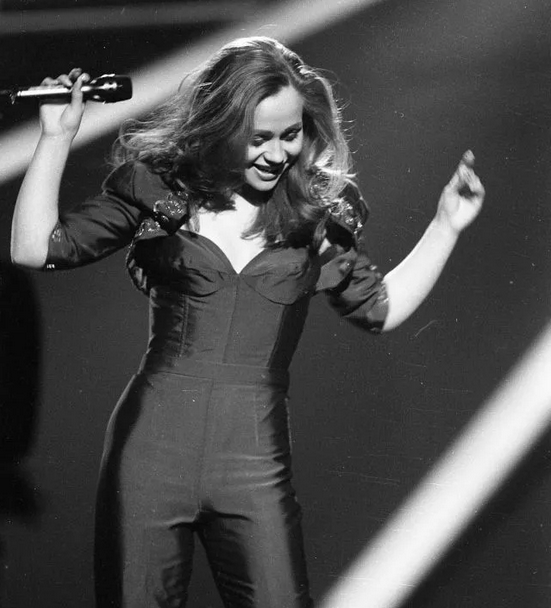
So why would Glasgow’s culture spokesperson, Billy Garrett, talk about the city holding ‘secret weapons’ in its fight against Liverpool? Why weaponize the conversation at all? Why say that the BBC is only “postponing the inevitable” before declaring Glasgow the victors’? And why be so tone deaf about a contest that should be about harmony, inclusivity and cooperation?
It’s a curiously adversarial approach that sits uneasily, to me at least, considering the context.
Similarly wrongfooted was the Telegraph’s pitiful ‘Liverpool doesn’t have an opera house or ballet company of international repute, so it can’t be a serious contender.' Which is like saying Liverpool museum shouldn’t be allowed to host a Doctor Who exhibition because we’ve not successfully traversed a cosmic wormhole or found a way to harness the energy of gravitational waves to fix the potholes down Utting Avenue. Honestly, people, it’s a pop contest.
Sure, for Telegraph readers, ‘pop’ means that bit in the Last Night of the Proms when people bounce up and down or, at a stretch, James Blunt — but come on, get an education before you open your mouths, people.
If I was ever asked to share my opinion of Liverpool’s suitability to host the annual Scientology barn dance, I’d probably pass. Not being a Scientologist, never having been audited, nor jigged to Cotton-eyed Joe on a hayrack would, I believe, disqualify me from sharing my opinion with the rest of the world.
So why are all these people who’ve clearly never been to a Eurovision song contest in their lives suddenly pontificating on our suitability, or lack thereof, to welcome the contest to the city?
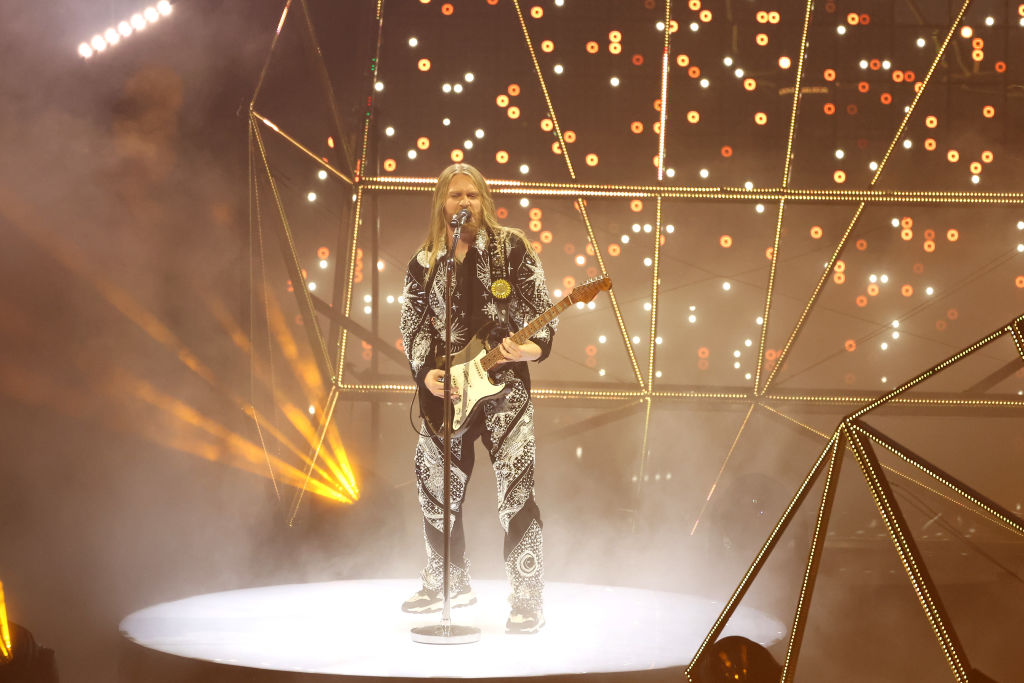
It’s all a curiously unsettling leitmotif. This ‘we’re better than you’ refrain of city battling city to host a glittery show when, not so very far away, cities like Mariupol and Kharkiv would just like the chance to exist at all. But, to its credit, it’s a refrain that our city hasn’t been joining in with.
“Where’s the solidarity in that?” Culture boss and bid supremo Claire McColgan asks as she looks out onto a windblown Pier Head, earmarked to be transformed into a glittery Eurovision fan village next spring if the decision — expected possibly as soon as tomorrow — goes our way.
“We’ve been very mindful from the outset that next year would be different,” McColgan says. As much work has gone into the outreach and education programmes surrounding the contest as “the fun stuff” and the team have worked closely with Liverpool’s twin city of Odessa.
McColgan knew we were rank outsiders from the start. “We had nothing to lose, so we went for it 100 percent,” she says. “All I knew is that I needed to get people here, to have a look around. The city would take it from there. This city is just so cinematic, the BBC knows that.”
There’s merit in her method — special measures, shambolic Strand closures and arrests at the very top of the council haven’t exactly done much for brand Liverpool of late. If we were a Eurovision entry, we’d be plucky Georgia. Half car-crash, half can’t-take-your-eyes-off carnival.
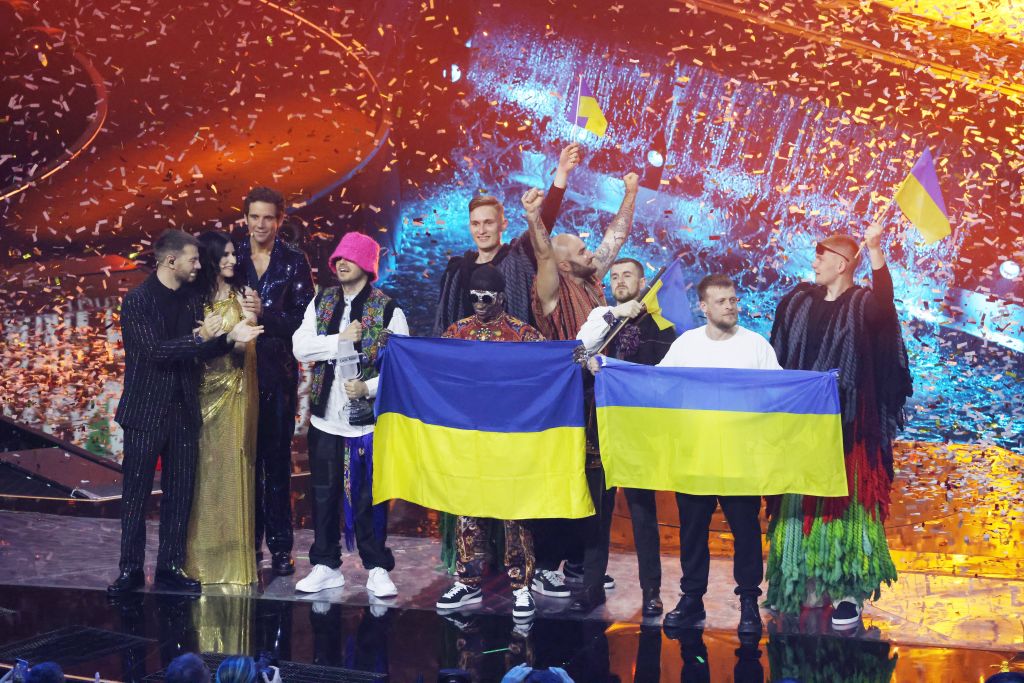
But McColgan knows better. She knows, like we all know, the real story. We need more people like her representing our city, I think. Make no mistake, however the final decision shakes down, to get this far is an amazing achievement.
“Our bid is really strong because we get it,” McColgan says. “We understand the huge responsibility. Of course, it’s a party, but it’s much more than that this time.”
“We’ve been honest and transparent. We never overpromise,” she continues, “It’s not about saying we’ll get millions of pounds from the Government, or offering things we’ll magic up later. It was saying: come and have a look at Liverpool, and see how the city wraps its arms around you.”
Whether the winning city does receive a cash bonus from the Government or not, it will still need to dig deep. This year’s city, Turin, spent around £10 million on hosting the contest. That’s a heck of a lot of cycle lanes, library books or community centres at a time when we’re all counting the cost of just being alive.
“Whether you like it or not, 47% of the city’s income comes from tourism and the hospitality sector,” McColgan says, emphatically. “I’ve worked for a really, really long time in this city, and I can honestly say we’re at a point now where we have to be competitive to survive. Like it or not, we have to do all we can to amplify our message, and encourage people to come and spend here after a tough few years.”
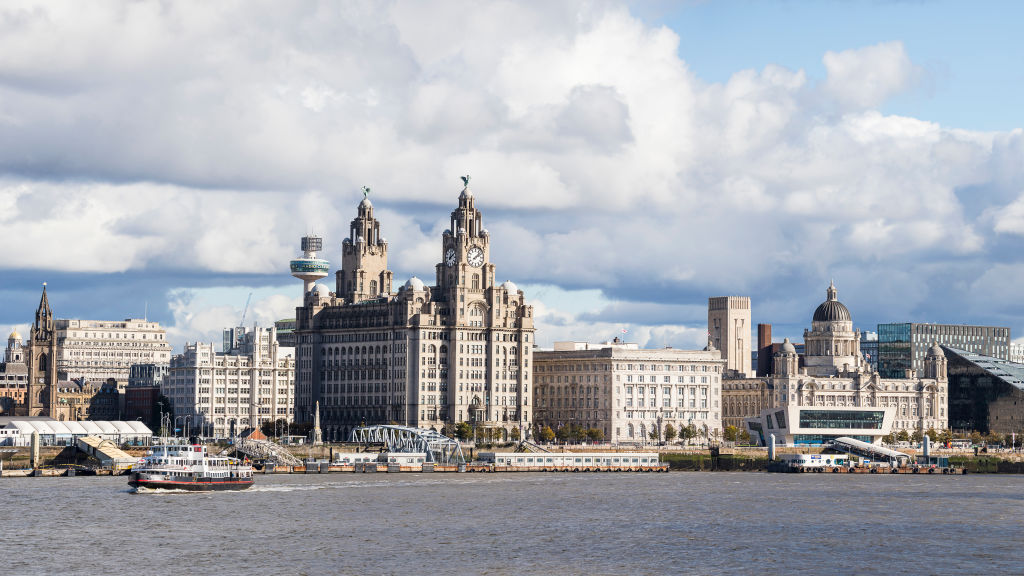
As McColgan says, there are very few events that come along that give you this much return on investment as Eurovision. 160 million eyeballs (well, technically double that, in eyeball numbers) will be glued to their screens next May. But the four hour spectacular is just the glittery tip of the Eurovision iceberg.
Tech teams and delegations start arriving months before the event. Then there’s the giddy headrush of ‘Eurovision Season’ when each of the 43 or so countries hold meet and greets in the fortnight leading up to the Grand Finale, walk down the pink carpet catwalk and drink the city’s bars dry of Aperol Spritz and vodka martinis. Imagine the Stranger Things upside down version of the Labour Party Conference and you’re getting warm.
That’s also when the contest’s tens of thousands of fans fly in, like exotic birds from mythical lands, to infuse the city with joy, inclusivity and Carmen Miranda headwear. Oh no, wait, that’s just me again. Still seething after I had my maracas seized in Lisbon.
When Eurovision comes to town, my friends, you can run, but you can’t hide. You know how, when you open a tube of glitter, it just ends up everywhere? Hands up who doesn’t think the city could do with a shower of magic dust sprinkled over it right now? Want to make a killing next spring? Set up a balloon arch-making company now.
There’s a reason why 21 cities bid for this in the first place. “Every one of them knew what it would do to their city’s brand, across the world. We never thought we’d make it this far,” McColgan says.
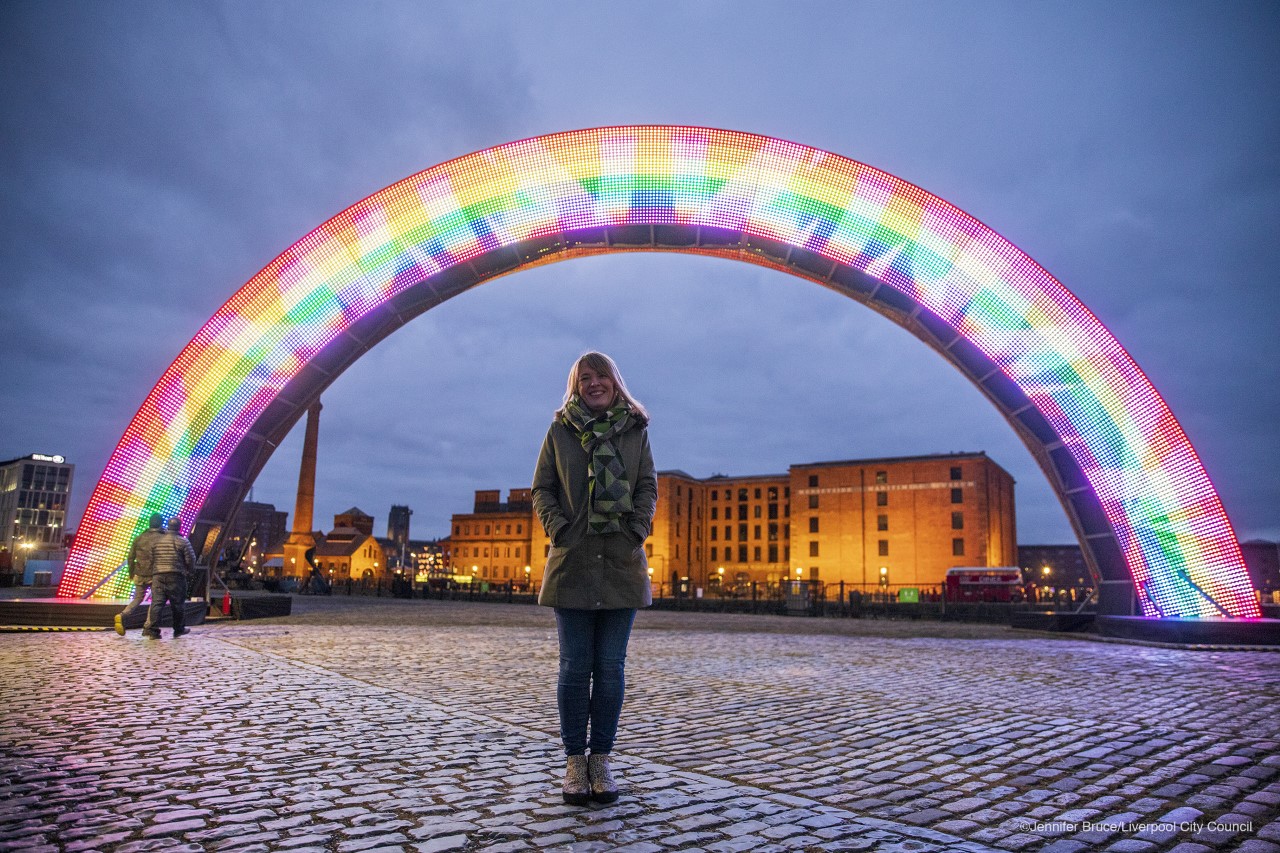
And so here we are. In many respects the city’s fortunes aren’t unlike those of the UK in Eurovision. We can all remember the glory days, but they’ve become a kind of hazy folklore. For too long we’ve been bobbing around at the bottom of the scoreboard, while other cities have seized the prize. The quality jobs, the investment, the infrastructure. The stability.
And let’s not forget: we’ve a good track record of taking things from Europe and making them our own. From steaming plates of scouse to gleaming silverware. Why not the sequins too?
Is McColgan our plucky Sam Ryder? Or will she go the whole way and rip her skirt off on The Strand, Bucks Fizz-like, and take the crown for the city?
“I can’t think about it,” she says nervously. “And anyway, I prefer Save All Your Kisses For Me, if we’re going to pick a favourite UK winner,” she laughs. “Imagine the whole city dressed up as Brotherhood of Man, doing that dance down at the Pier Head,” she says.
I’d rather not, I tell her.
“I was there when Tessa Jowell revealed that we’d won the Capital of Culture year in 2008. The transformation in confidence and pride in our city was palpable. You could feel it in the streets.”

Many of that same winning team are still in place, including creative lead Robin Kemp. It’s partly why, McColgan says, we’ve got this far, beating the usual suspects of Manchester, Leeds and Birmingham. But there is another reason: the city is just made for Eurovision. We all know it. It’s obvious. Most Saturday nights in town look like a dress rehearsal anyway. I’m fairly sure I saw the yodelling Croatian shepherd get his wings clipped in the Navy Bar the other week, and the Polish milkmaids were regularly to be found churning away in a hot tub in a Signature Living hotel before health and safety pulled the plug.
Whoever wins will only have seven months to hammer out all the fine print before the credits roll but, come on, we were born ready here.
“There are some things that just suit Liverpool,” McColgan says, “and this is one. Just look out there,” she says, gazing over the waterfront, now gleaming after a sharp downpour. “Can you imagine a better, more international stage than that…”
If Glasgow wins it will host a fantastic event. It’s a wonderful city, and I’ll be there. But McColgan’s right. Liverpool just fits better, feels better. Liverpool’s joyous unpredictability, its refusal to play by the rules, to follow the crowds or to sit still and act like a grown-up is very Eurovision.
Liverpool and Eurovision. Open-hearted, all-inclusive and slightly ridiculous. That’s why I love them both. And that’s why it should be here.
And, like the girl said, better the devil you know.

Comments
Latest
One of Merseyside’s oldest sports clubs still play every Saturday
Does Liverpool have a ketamine problem?
The other Liverpool
The end of the PCC: Who will scrutinise Merseyside Police from now on?
Open-hearted and unhinged: why Liverpool and Eurovision are made for each other
Liverpool's bid shows what the city can achieve when it puts its mind to it